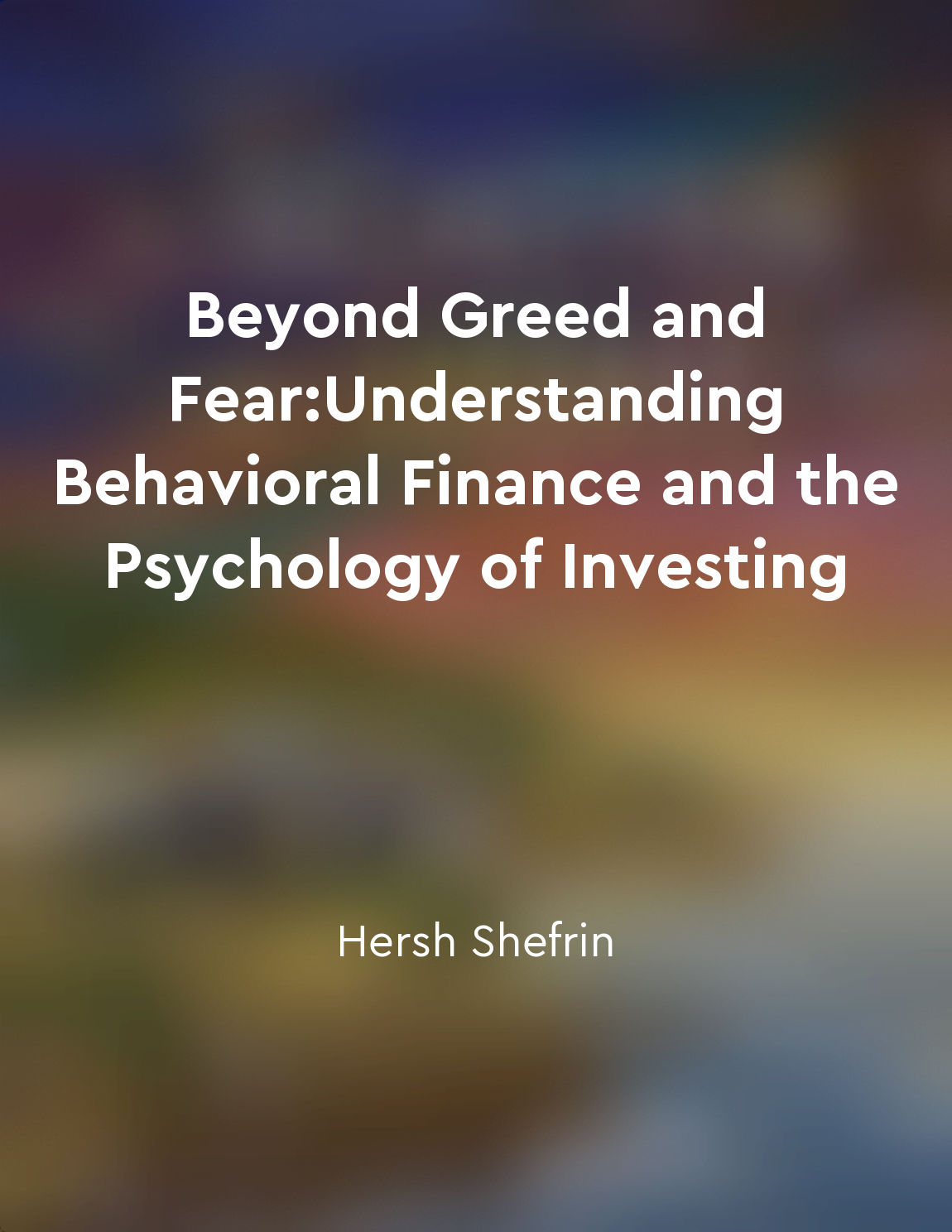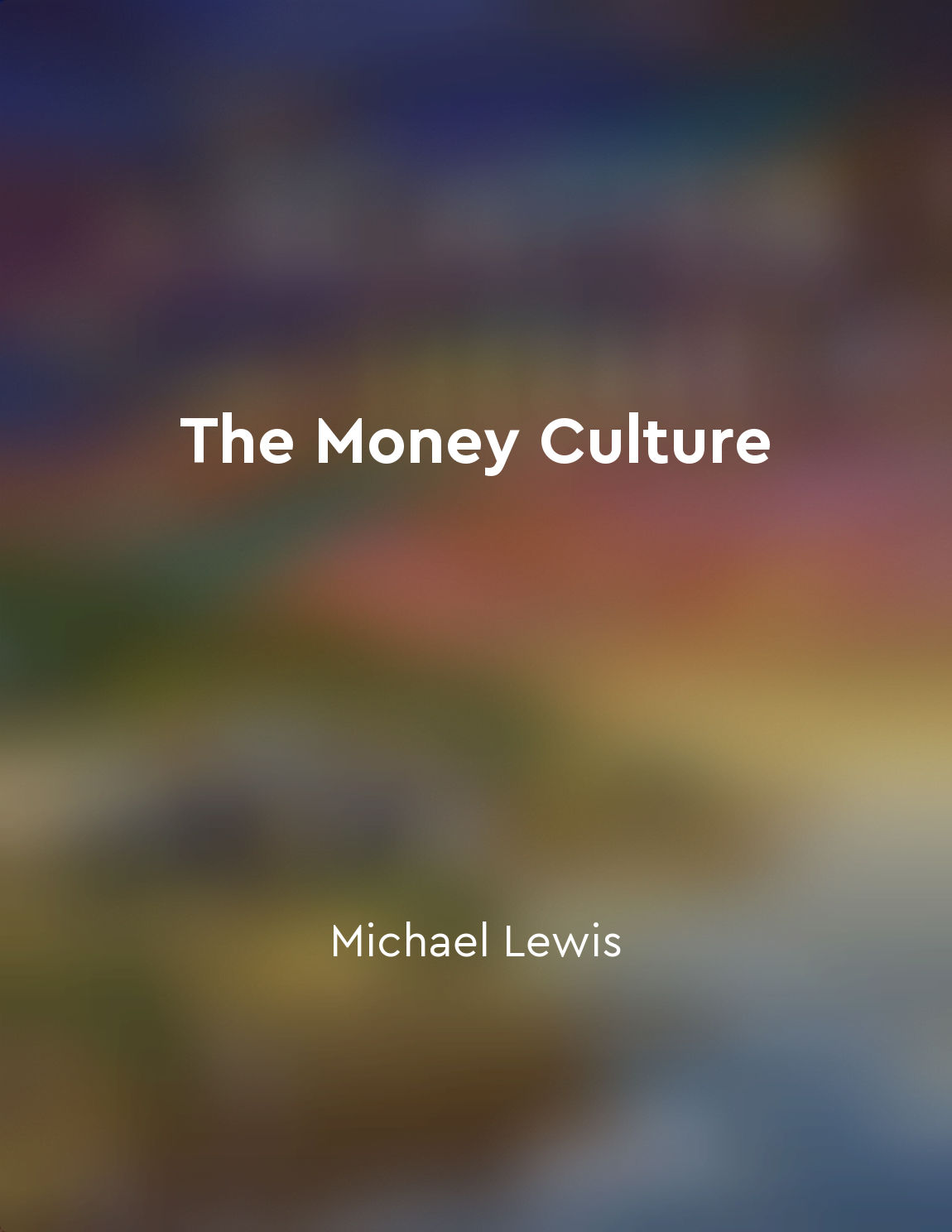Culture of excessive risktaking permeates industry from "summary" of The Money Culture by Michael Lewis
In Wall Street, risk-taking is not just a part of the job - it is the job. Traders and investment bankers are constantly pushing the boundaries, seeking bigger and riskier bets to earn higher profits. This mentality of excessive risk-taking has become deeply ingrained in the industry, shaping its culture and driving the behavior of those within it. The allure of quick riches and the fear of missing out on lucrative opportunities drive individuals to take on more risk than they can handle. The pressure to outperform peers and deliver high returns to investors further fuels this culture of excessive risk-taking. In the high-stakes world of finance, taking risks is not just encouraged - it is exp...Similar Posts

Financial education is critical for making informed decisions
Understanding how money works is essential for navigating the complexities of modern life. Financial education equips individua...

Overconfidence can lead to poor investment outcomes
Overconfidence is a common behavioral bias that plagues many investors. It refers to the tendency for individuals to overestima...
Emotions can drive poor investment decisions
Investing decisions can often be heavily influenced by our emotions. When it comes to managing our money, fear and greed can cl...

Don't rely on tips or rumors when investing
It is essential for investors to understand that relying on tips or rumors when making investment decisions is a risky and pote...
Money attitudes can change over time
As individuals move through different stages of life, their attitudes towards money are likely to shift. For example, a young a...
Selfattribution bias makes investors attribute successes to their own skill rather than luck
Self-attribution bias is a common psychological quirk that affects how investors perceive their own successes. When investors e...
Emotions can cloud financial judgment
When it comes to making financial decisions, emotions can often get in the way of sound judgment. People tend to let their feel...
Surround yourself with wise advisers
Seek the company of those who possess knowledge and understanding beyond your own. Surround yourself with individuals who can o...
Economic agents adapt to changing market dynamics
Economic agents, such as consumers, producers, and investors, are constantly responding to changing market conditions and dynam...

Financial success is a result of habits, not luck
Financial success is a result of habits, not luck. This idea underscores the importance of consistent behaviors and actions in ...

